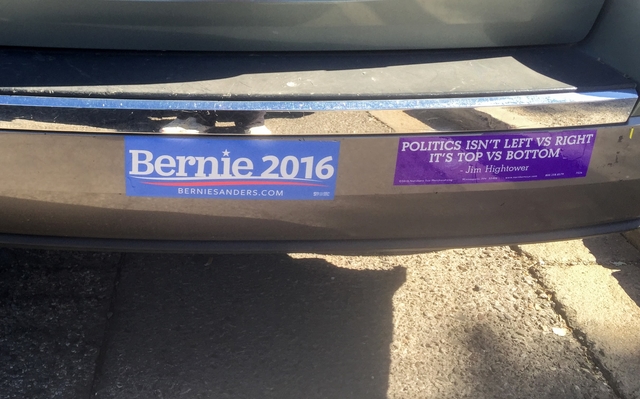Over the past few weeks, as the mainstream media has finally started to recognize Bernie Sanders as a serious challenger to Hillary Clinton for the Democratic nomination, it has become commonplace to equate him with Donald Trump. Both, we are told, are protest candidates, supported by those who are “mad as hell” about the establishment in Washington and its masters on Wall Street. But are they really equivalent?
Fans of Sanders’ brand of populism have take issue with the presumption that a career politician who is basically proposing a return to the New Deal policies of Franklin Delano Roosevelt could have anything in common with a billionaire deal-maker deploying a Fascist playbook developed under Mussolini and Hitler. Nor do they take kindly to the notion that they might resemble Trump’s supporters.
It’s as if the Cold War conviction that Communism and Fascism are basically the same, at an abstract level, has been transposed to an American political landscape that has traditionally had little room for anything too far out. To Democrats worried that Donald Trump really would be as extreme a President as he is promising to be, this is a troubling development, implying that Sanders is a similarly dangerous radical.
Here’s the problem, though. If you keep talking about the “revolution” your candidacy has begun, some people will take you at your word. The fact that the changes you propose would mostly represent a change back to a style of government that was once middle-of-the-road doesn’t neutralize the force of your rhetoric. Sanders and his supporters have to decide whether they would rather be perceived as working for incremental improvements within a largely broken system or as firebrands not afraid to break conclusively with the status quo.
Part of that process will involve determining whether it is worthwhile to act as though the false equivalence the mainstream media has established between Sanders and Trump could potentially hold some truth after all. Does it make strategic sense to reach out to those anti-establishment populists whose ire at financial elites is often misdirected at minorities and foreigners?
Consider a bumper sticker that is popping up on the vehicles of Sanders supporters, featuring a quote from public-radio populist Jim Hightower: “POLITICS ISN’T LEFT VS RIGHT. IT’S TOP VS BOTTOM.” This is a sentiment that was expressed quite often during the Great Depression and continues to feel appropriate in light of what transpired in the wake of the crisis back in 2008. But as appealing as this formulation may be, it traffics in the sort of “post-ideological” populism that can easily be channeled in directions that progressives would find intolerable. And that’s the risk: sometimes you just can’t shove your political demons back in Pandora’s box.
Commentary by Charlie Bertsch. Photograph courtesy of the author.


